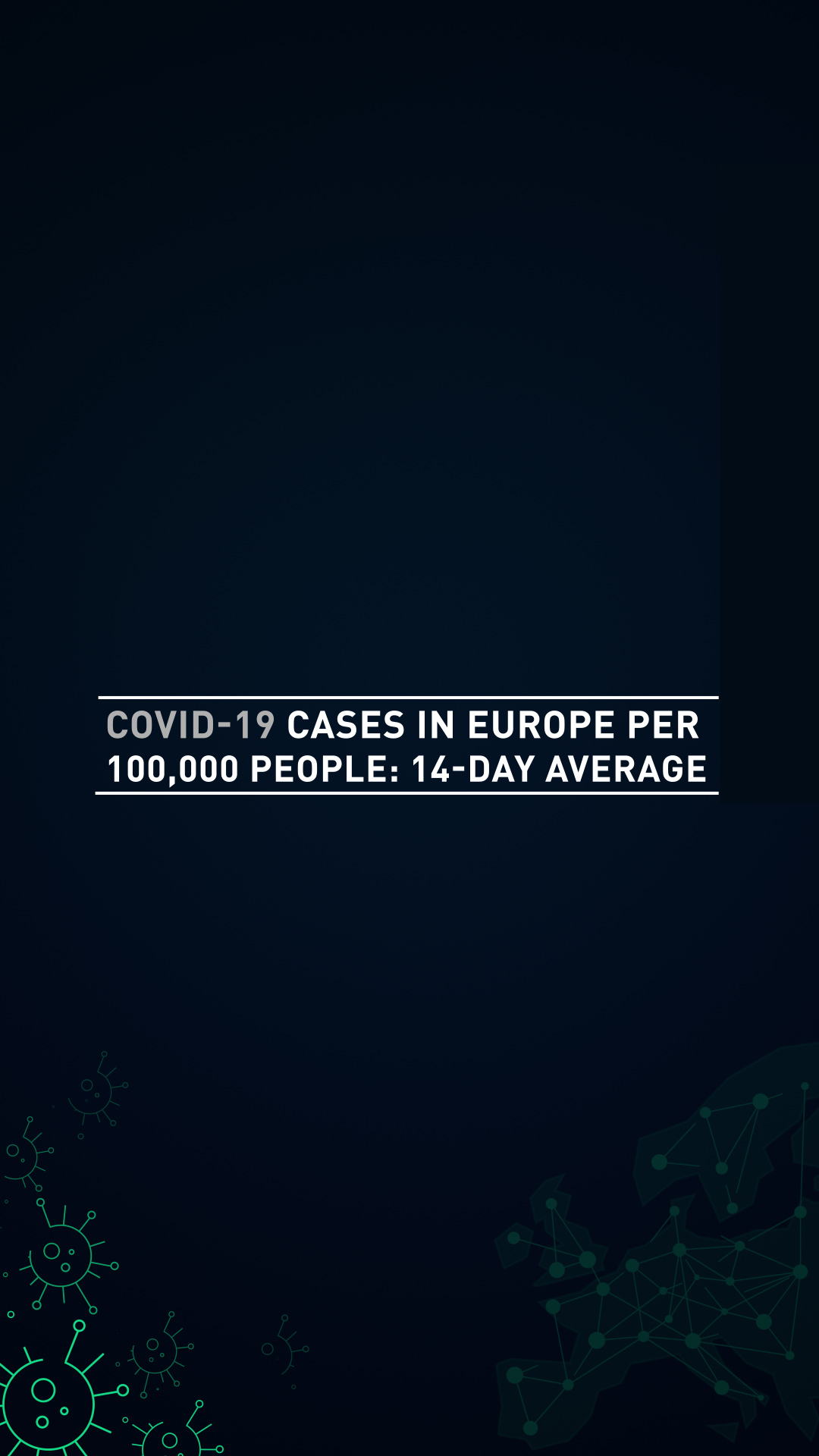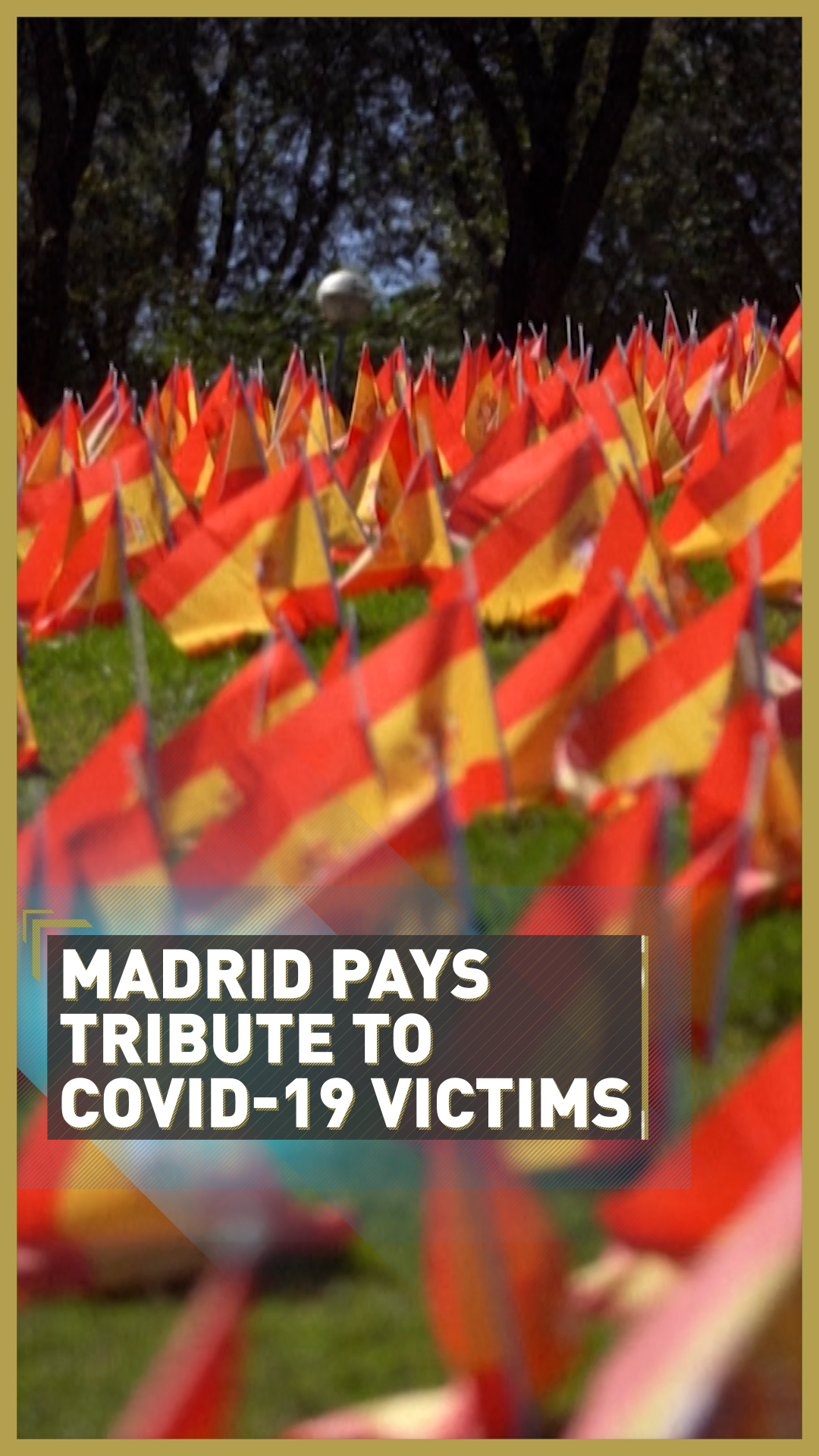TOP HEADLINES
· More than one million people have died from COVID-19 according to researchers at Johns Hopkins University - described as a "mind-numbing" figure by UN Secretary-General António Guterres.
· Spain's government has threatened to take action against Madrid authorities if they fail to slow the spread of the virus in the region.
· UK Prime Minister Boris Johnson was forced to correct himself after mistakenly saying people in different households in the worst-affected regions could meet indoors, despite fines being in place for doing just that.
· Poland's health minister, Adam Niedzielski, has announced restaurant and bars in the worst-affected areas of the country will have to close by 10 p.m. but added there will not be nationwide lockdown.
· Germany will continue with heavy spending to help its economy recover from the pandemic, the country's finance minister Olaf Scholz confirmed.
· Italy is expected to extend its state of emergency past the current expiration date in mid-October to help control the virus, a senior official has said.
· The Netherlands has introduced tighter restrictions as bars and cafes are told to shut early and people are recommended to wear face masks in shops after Prime Minister Mark Rutte said the situation has become "serious."
· Slovakia is to announce a new state of emergency later this week following a surge in cases, said Prime Minister Igor Matovic.
· The World Health Organization has said $5 tests that show on-the-spot results in 15 to 30 minutes will be rolled out to lower- and middle-income countries across the world.
· Students in the UK are expected to be allowed to return home for Christmas despite concerns of a second wave in the country, according to the junior skills minister, Gillian Keegan.
· UK bakery chain Greggs has said it will be talking to staff about cutting their hours to minimize the risk of job losses.
· Czechia reported 1,287 new cases in the past 24 hours, its lowest tally recorded since 20 September.
· Spain is due to approve an extension to its job retention scheme currently in place until 31 January, a labor ministry source said.
· The UK government has tightened restrictions in part of England's North East region as infection rates continue to rise there. Residents in seven areas, including the cities Newcastle and Sunderland, will no longer be allowed to socialize indoors with people outside their household or social bubble.
· Only one in eight countries have introduced measures to specifically protect women from the impact of the pandemic, according to a database of government responses launched by two UN agencies.

The Netherlands has introduced tighter restrictions to slow the spread of the virus. /Reuters
The Netherlands has introduced tighter restrictions to slow the spread of the virus. /Reuters
The situation is extremely serious, and I think we must adopt very fundamental decisions and very bold decisions
- Igor Matovic, Slovakia's prime minister
ACROSS EUROPE
Isobel Ewing in Budapest
Hungary's registered case numbers keep climbing, with 851 new cases recorded on Tuesday and eight deaths.
There are more than 25,500 active cases in the country.
According to virus experts, virologists, mathematicians and experts from Hungary's Ministry of Innovation and Technology (ITM), the number of deaths is expected to rise sharply in early October.
The experts said that 90 to 95 percent of COVID-19 cases in Hungary are not officially registered as cases and the sufferers are not in quarantine.
Although the number of tests has increased since the first wave in Hungary, many experts have pointed out that if the rate of positive results among the tests is too high – according to the WHO, if it exceeds five percent – that means the country is not performing enough tests.
In Hungary, this indicator has not fallen below 5 percent since the beginning of September, and sometimes even exceeded 10 percent.

CLICK: READ OUR GUIDE ON THE THREE MAIN COVID-19 TESTS BEING USED IN EUROPE
Stefan de Vries in Amsterdam
To stop the spread of COVID-19, the Netherlands introduced stricter guidelines on Monday.
Face masks will be recommended in stores in the largest three cities, but not mandatory, because of legal restrictions. Businesses, however, can refuse clients who are not wearing face masks.
Restaurants and bars will have to close at 10 p.m. and can only receive a maximum number of 30 guests at a time. Supermarkets need to reserve two specified shopping hours per day for the elderly and others in vulnerable health.
Working at home becomes the strict norm unless that is virtually impossible.
Spectators are no longer allowed at sporting events. Mayors have the power to close places not respecting the rules. The new measures will come into effect on Tuesday at 6 p.m. local time.
00:20

Ross Cullen in Paris
The French prime minister will meet representatives of the hospitality sector on Tuesday morning as anger grows in Marseille over the forced closure of bars and restaurants.
On Monday, 100 business owners tried to block some road tunnels and part of a motorway in Marseille in protest at the shutdown measures that have forced the closure of all cafes, pubs and bistros in the city for the next two weeks to try to control the surge in new coronavirus measures.
The move affects Marseille and Aix-en-Provence but 11 other cities in France have had to impose a 10 p.m. closing time on bars.
Andrew Wilson in London
Prime Minister Boris Johnson was forced to apologize after mistakenly saying people living in high-risk areas of England's North East region were able to meet indoors with others from different households, despite fines being in place against such action.
"This is vital to control the spread of coronavirus and keep everyone safe. If you are in a high-risk area, please continue to follow the guidelines from local authorities." Johnson said on Twitter.
Education Secretary Gavin Williamson confirmed that university students will be able to return home for Christmas as ministers began to draw up plans on how it can be done safely.
The Home Office is said to be pushing police to resort to fines more than warnings as government pressure intensifies on public compliance with new restrictions.
At the same time, up to 80 Conservative members of parliament are expected to back a revolt against Downing Street's lockdown measures, with pressure to have parliament included again in anti-coronavirus legislation.
Mia Alberti in Berlin
German Chancellor Angela Merkel will meet with state premiers on Tuesday to discuss the current situation of the pandemic in the country.
As cases of COVID-19 continue to rise, the government is expected to decide on more restrictions – especially regarding parties and the sale of alcohol.
Groupings might be limited to 25 people in private and 50 in public spaces, according to a draft resolution of Tuesday's meeting accessed by Reuters.
On Tuesday, Germany's daily cases of coronavirus passed 2,000 for the fifth time this month. There were 2,089 new cases and 11 more people died, according to the Robert Koch Institute.
01:22

FROM OUR GLOBAL COLLEAGUES
CGTN Europe special: Redesigning the Future
CGTN China: Chinese mainland reports 12 new COVID-19 cases, all from overseas
CGTN America: Canada's largest province reports high number of COVID-19 daily cases
CGTN Africa: Zimbabwe begins gradual reopening of schools amid COVID-19
Sign up here to get the COVID-19 Europe bulletin sent directly to your inbox
CGTN Europe has been providing in-depth coverage of the novel coronavirus story as it has unfolded. Here you can read the essential information about the crisis.